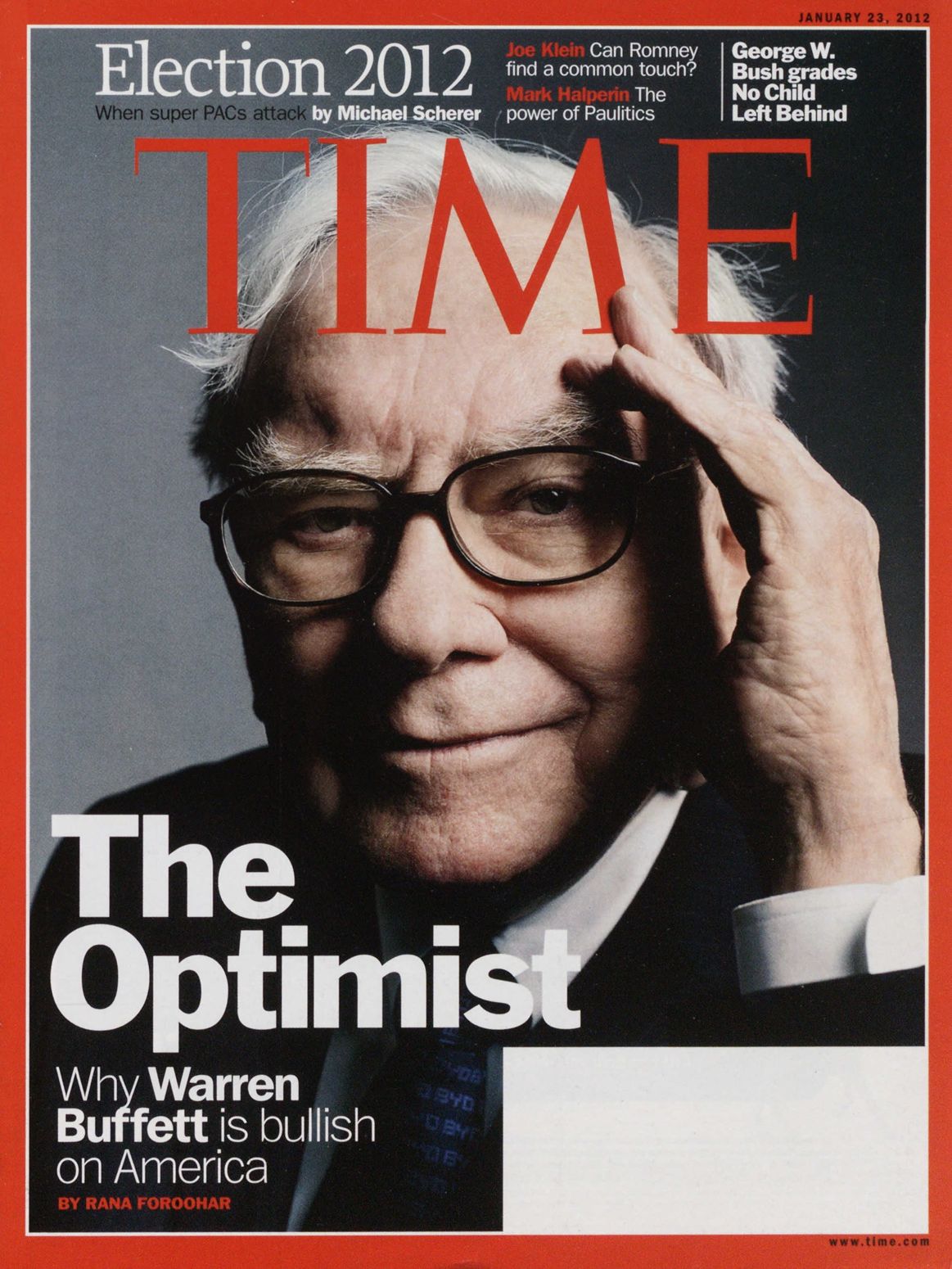In a hallway at the Omaha headquarters of Berkshire Hathaway, a wall is lined with New York Times front pages on momentous days in stock market history. The framed newspaper pages were put there by CEO Warren Buffett. But why would Buffett—who bought his first stocks when he was 11 years old and grew up to be the world’s second-richest person—pick moments like the 1929 crash to decorate his office?
“I wanted to put on the walls days of extreme panic in Wall Street just as a reminder than anything can happen in this world,” he says in this clip provided exclusively to TIME, from the upcoming HBO documentary Becoming Warren Buffett. “It’s instructive art.”
As shown in the documentary, which airs Jan. 30, stock market history is a big part of the Buffett story—beginning with his birth on Aug. 30, 1930, in the middle of the Great Depression.
“It was hugely important that he was born during the Depression and witnessed his father lose his job,” says the documentary’s director, Emmy Award-winner Peter Kunhardt. “His son [Peter] once told me when [Warren] walks down the street and sees a penny, he picks it up. When he was an early entrepreneur during the Depression trying to increase his five-cents-a-week allowance by selling Coke or delivering papers, he knew the power of how a penny here, a nickel or dime there, could turn into something much greater.”

Buffett’s father, Howard, was a grocer’s son who grew up to be a stockbroker and later became a four-term Republican Congressman. His reaction to the Depression was to follow the mold of former President Calvin Coolidge, who had said that the “chief business of the American people is business,” as TIME reported in a 2012 cover story, by Rana Foroohar, about the investor. The elder Buffett even once passed out flyers that decried Franklin D. Roosevelt’s the New Deal as the “greatest threat to democracy.”
The younger Buffett, however, was differently affected by living through that time of economic turmoil. Though he would credit his late first wife Susan “Susie” Thompson Buffett for converting him from Republican to Democrat, he came away from his youth during the New Deal era with not only an appreciation for every hard-earned penny but also a belief that American business and government, working together, could make the world better.
That belief can be seen in his personal philanthropy. For 30 years, he has chosen to just take home a salary of $100,000, “the smallest take-home earnings of any Fortune 500 CEO,” TIME reported in the July 6, 2015 issue. And in 2006, to honor his wife’s memory, he pledged to give away 99% of his fortune to the Gates Foundation, run by his good friends Bill and Melinda Gates.
But it is also seen in his belief that, even though a new terrible moment worthy of the wall of shame may always be lurking, there’s also a way forward, as TIME reported in 2012:
“We need to tell people that the road is going to be long. We’ve got too many damn houses. They’re not going to go away. This recovery is going to take a long time. And the financial crisis has exposed a lot of flaws in our system.” But the flaws can be fixed. With the right rules, says Buffett, our system can work again.
More Must-Reads from TIME
- Donald Trump Is TIME's 2024 Person of the Year
- Why We Chose Trump as Person of the Year
- Is Intermittent Fasting Good or Bad for You?
- The 100 Must-Read Books of 2024
- The 20 Best Christmas TV Episodes
- Column: If Optimism Feels Ridiculous Now, Try Hope
- The Future of Climate Action Is Trade Policy
- Merle Bombardieri Is Helping People Make the Baby Decision
Write to Olivia B. Waxman at olivia.waxman@time.com